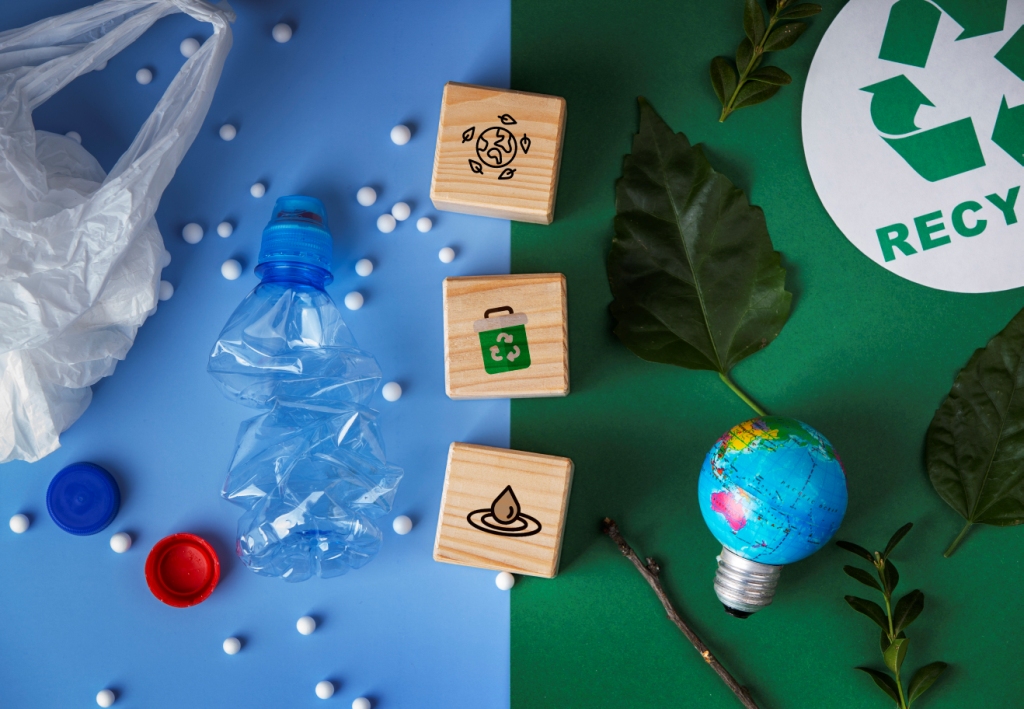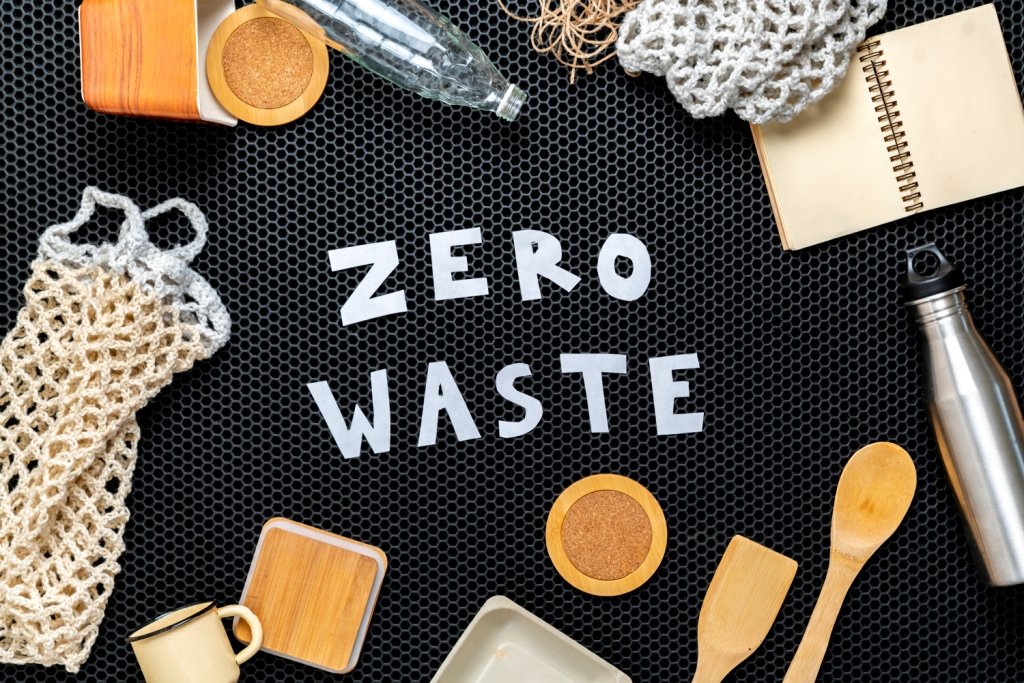The Concept of Zero-waste Living
Zero-waste living refers to a way of life that seeks to minimize waste generation and maximize the efficient use of resources. It focuses on making conscious choices in our daily lives that align with the principles of sustainability and minimalize our impact on the environment. Key behaviours include rejecting unnecessary or undesirable items (such as single-use plastics, disposable items, excessive and toxic packaging, etc.), decreasing consumption or following mindful consumption (choosing durable, high quality products over disposable ones, following minimalism and purchasing only essentials, supporting environmentally-friendly brands, using products that use minimal and eco-friendly packaging), reusing and recycling products (e.g. using repaired or refurbished electronic items instead of buying new ones), composting organic waste, developing environmentally-friendly habits, and increasing community engagement (e.g. organizing and participating in regular community workshops and educational programs focused on sustainable living practices), among others. The zero-waste living concept is gaining widespread attention with growing awareness about environmental issues and increasing efforts towards resolving those issues.
A Collective and Committed Effort

While several companies like Unilever, Google, Subaru, Procter & Gamble, Sierra Nevada, RTS, TerraCycle, RLG by Rconomy, and many others follow zero-waste principles in their business operations, it must be borne in mind that true zero-waste living represents a collective effort that warrants commitment of and collaboration among companies, individuals, governments, and communities alike. Companies should play a key role by adopting zero-waste and sustainable production practices, individuals must contribute by making mindful and responsible consumption choices, governments must enforce policies
promoting waste reduction and sustainability, while communities must engage in collective action to foster a culture of environmental protection and preservation through education, awareness campaigns, and grassroots initiatives. Such a joint, committed and protracted effort is what would actually realize zero-waste living and a sustainable future.
Towards a Sustainable Future
In essence, zero-waste living symbolizes a holistic approach towards sustainable practices that emphasizes cultural shifts, regulatory compliance, public participation, and environmental stewardship. In our quest for a greener, cleaner and healthier planet, the principles of zero-waste living and sincere, collective efforts would lead us to a future where sustainability is not just a goal, but a way of life.

Shared by: Ms. Radhika Kalia,
MD, RLG Systems India Pvt Ltd





